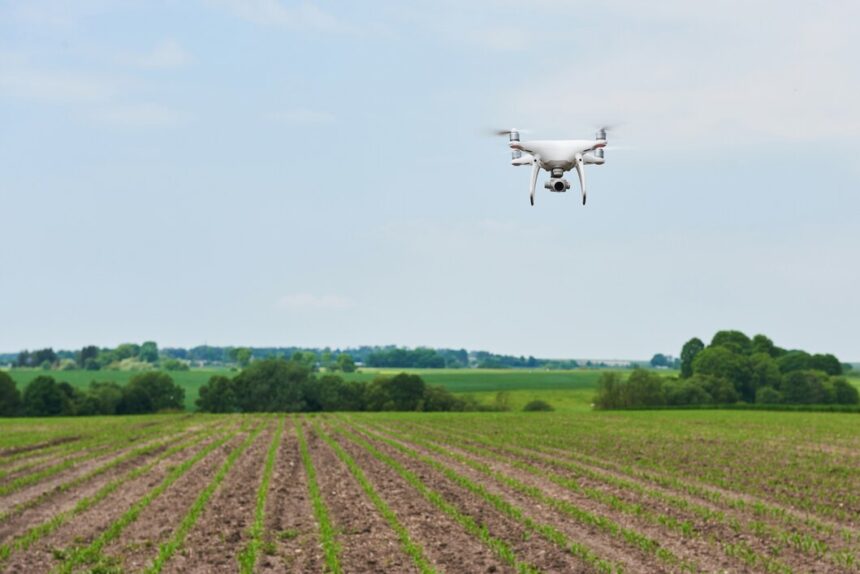Precision farming, also known as precision agriculture, is a modern farming approach that utilizes technology to optimize crop yields, minimize input costs, and reduce environmental impact. In South Africa, where agriculture plays a significant role in the economy, embracing precision farming techniques can lead to increased productivity and sustainability. In this article, we’ll explore ten techniques South African farmers can leverage for precision farming and how these methods can benefit agricultural practices in the country.
1. Global Positioning System (GPS) Technology
GPS technology allows farmers to accurately map their fields and track the location of farm machinery in real-time. This enables precise planting, spraying, and harvesting operations, reducing overlaps and minimizing input waste. GPS-guided equipment also facilitates variable rate application of fertilizers and pesticides, optimizing resource use and improving crop health.
2. Geographic Information Systems (GIS)
GIS software integrates spatial data to provide farmers with valuable insights into soil properties, topography, and crop performance. By analyzing this information, farmers can make informed decisions about crop selection, irrigation management, and soil conservation practices. GIS technology enhances precision farming by enabling targeted interventions tailored to specific field conditions.
3. Remote Sensing
Remote sensing techniques, such as satellite imagery and drones, allow farmers to monitor crop health and detect stress factors from a distance. By capturing high-resolution images of fields, farmers can identify areas of pest infestation, nutrient deficiencies, or water stress, enabling timely intervention and targeted treatment. Remote sensing technology enhances precision farming by providing timely and accurate information for decision-making.
4. Variable Rate Technology (VRT)
VRT enables farmers to apply inputs, such as fertilizers, pesticides, and irrigation water, at variable rates within a field based on spatial variability. By tailoring inputs to match specific soil and crop requirements, VRT maximizes resource efficiency and minimizes environmental impact. South African farmers can leverage VRT to optimize crop yields while conserving resources and reducing costs.
5. Soil Sampling and Analysis
Soil sampling and analysis are essential components of precision farming, allowing farmers to assess soil fertility, pH levels, and nutrient content. By understanding soil variability within their fields, farmers can develop customized fertilization plans and apply nutrients where they are most needed. Soil sampling and analysis enable targeted nutrient management, improving crop yields and sustainability.
6. Automated Weather Monitoring
Automated weather monitoring systems provide real-time data on temperature, humidity, rainfall, and wind speed, allowing farmers to make informed decisions about irrigation scheduling, pest management, and crop protection. By integrating weather data into their farming operations, South African farmers can optimize resource use and mitigate weather-related risks, enhancing productivity and resilience.
7. Controlled Environment Agriculture (CEA)
CEA techniques, such as hydroponics, aquaponics, and vertical farming, offer opportunities for year-round crop production in controlled environments. By optimizing growing conditions, CEA allows farmers to maximize crop yields while conserving water and reducing pesticide use. CEA technologies can be particularly beneficial in regions with limited arable land or challenging climatic conditions, such as parts of South Africa.
8. Precision Livestock Farming (PLF)
PLF utilizes sensors and monitoring systems to track animal health, behavior, and productivity in real-time. By collecting data on factors such as feed intake, milk production, and movement patterns, farmers can identify health issues, optimize feeding regimes, and improve overall herd management. PLF enhances livestock farming efficiency and welfare while reducing costs and environmental impact.
9. Data Analytics and Decision Support Systems
Data analytics and decision support systems help farmers analyze large volumes of data collected from various sources, such as sensors, satellites, and weather stations. By generating actionable insights and recommendations, these systems assist farmers in making informed decisions about crop management, resource allocation, and risk mitigation. Data-driven decision-making enhances precision farming by optimizing productivity and sustainability.
10. Collaborative Platforms and Knowledge Sharing
Collaborative platforms and knowledge sharing initiatives enable farmers to exchange information, best practices, and lessons learned within agricultural communities. By leveraging collective wisdom and expertise, South African farmers can overcome challenges, adopt new technologies, and improve farming practices. Collaborative platforms foster innovation and collaboration, driving continuous improvement in precision farming.
Precision farming offers South African farmers a range of techniques and technologies to optimize crop production, enhance sustainability, and increase resilience to climate change and market volatility. By leveraging tools such as GPS technology, GIS, remote sensing, VRT, and data analytics, farmers can make informed decisions and achieve higher yields with fewer inputs. Embracing precision farming practices can contribute to the growth and competitiveness of South Africa’s agricultural sector while promoting environmental stewardship and food security for future generations.
Join 'Farmers Mag' WhatsApp Channel
Get the latest Farming news and tips delivered straight to your WhatsApp
CLICK HERE TO JOIN






